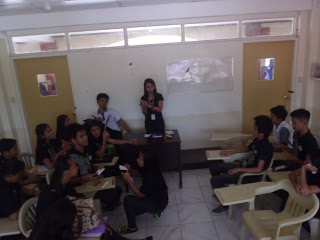
 |
| INTERMISSION # |
I am the one assigned to have a speech in the opening remarks. What is worst is that because of the hectic schedules for the preparation I haven't prepared my speech. And i made my speech on the day of the pageant. Proud to say I had delivered it very well.


 |
| AWARDING OF CERTIFICATES |
The program was outstanding, colorful and fun. There was an intermission number from different sections and they keep the dance floor burning as they grove and shake.
It is very nice that every participated in the activity. The intermission numbers are awesome and entertaining.

 |
| THE CANDIDATES IN DENIM WEAR |

 |
| MR. & MS. NSTP 2013 |
 |
| THE NSTP FAMILY |
 |
| NSTP FAMILY |
We are very tired preparing all the things needed for the pageant. And it takes double efforts and sacrifices for all of us. We are very happy for the event was successful and our sweats and efforts worth it. Even we feel tired much, it is very overwhelming to see the success of what you have done. Its been one of our great achievements for us.
Congratulations to all the candidates.. especially those who win the title.












































